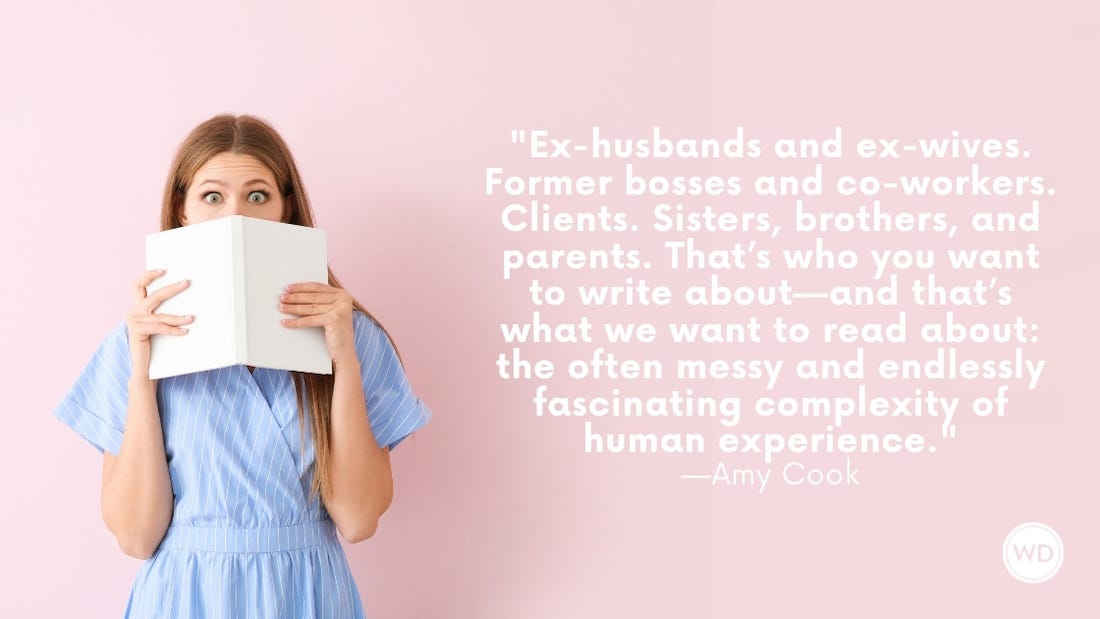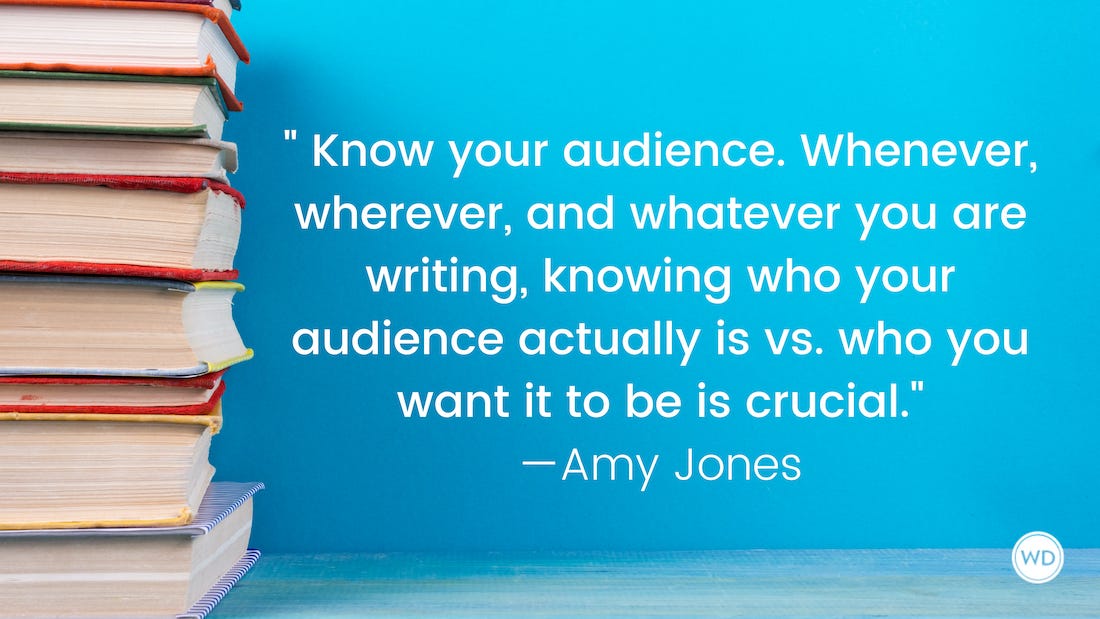READER QUESTION: How many ideas should I present in a pitch?
Hey, screenwriters— Today’s question comes from Anita, who also happened to take one of my writing classes a few weeks ago. Anita emails… “My partner and I have been developing…
Hey, screenwriters—
Today’s question comes from Anita, who also happened to take one of my writing classes a few weeks ago. Anita emails...
“My partner and I have been developing several [television show] ideas, and have more ideas we are fleshing out. We have been taking meetings here and there with some friends and contacts and are on our way... I wanted to know your opinion on pitching and pitch meetings. Would you say it's best to go in with your strongest idea and if asked, get into the others? Or how many would be best to go in to a pitch meeting with?”
Lots of people ask this, Anita... and I usually recommend people go in with two ideas; I think the one-two punch works really well. On rare occasions, I might have a third in my back pocket… but even when I do, I don’t go in expecting to use it.
I would never attempt to pitch more than three ideas. Even if I had four brilliant ideas, and the first three pitches went tremendously, I would rather leave the “audience” (producers or execs) wanting more. And even if they’re asking, I think people tend to hit "information-overload" after three pitches. So if I’d exhausted three and they were still clamoring for more, I’d probably say, “Know what?... I have a couple ideas I’m still working on, but they’re not quite ready. I’d love to come in back in once they’re fully baked and see what you think.”
This way, you A) get another meeting and more face time, B) get to pitch again when the buyers are fresh and not already thinking about your first ideas, and C) start an actual relationship that can be nurtured and grown (which is really what it’s all about, anyway… very rarely do execs or producers acquire projects from people they’re just meeting for the first time).
Having said all this, I still don’t usually like to pitch more than two ideas. Two outstanding ideas are stronger, and more memorable, than two outstanding ideas AND one almost-outstanding idea. And even if neither idea sells (which they probably won’t—and I say that not to be a pessimist, but because statistically speaking, most ideas don’t get bought), you leave the meeting being remembered as someone who has only outstanding ideas… even if those ideas weren’t appropriate to buy.
Which brings me to the real purpose of a pitch meeting…
Sure, we all want to sell something. But the cold hard truth is: most pitches don’t sell.
And that's not a comment on anyone's ideas. You could have the best idea ever… let’s say you have a brilliant concept for a sitcom about a family of aliens (which, I admit, is probably NOT a billiant concept, but let’s just PRETEND it’s brilliant)… and it still may not sell. It’s easy to think you flubbed the pitch or execs hated the idea. But what you may not know—what you couldn’t know—is that they already have three family sitcoms in development and they’re only looking for urban cop dramas. Or maybe they developed a show about aliens last year, it didn’t sell, and they don’t want to go down that path again. Maybe they’re looking for a show to pair with another sitcom, and while they love your alien idea, it’s just not a right fit for their current needs.
The point is: there are a million factors determining whether or not your show sells, and you can only know a handful of those factors.
Secondly, TV shows are rarely bought on pitch from total strangers, or even acquaintances, even when they’re brilliant ideas. Execs usually buy ideas only from established producers and/or people they’ve already worked with. But this doesn’t mean they’re not constantly looking for creative new talents, which—again—brings me to the real purpose of a pitch meetings…
The true purpose of a pitch meeting is not to sell an idea, but to impress your audience with your creativity, talent, and passion enough to BEGIN A RELATIONSHIP with them.
I never go into a pitch expecting to sell something. I go in hoping to form a connection with the buyer, impress them with my thoughts, and continue a dialogue… a dialogue that continually lets me know what they need and lets them know what I’m working on. So as we continue talking after the meeting, we eventually, hopefully, find something to work on together.
Anyway, Anita, I guess the short, straightforward answer to your original question is:
Go in with your two best ideas.
And having said that, only pitch the second idea if conversation allows it to come up organically. Maybe you finish Pitch #1 and the exec says, “So, what else are you working on?” Or, “Do you have anything else?” In which case: pitch away.
Or maybe your second idea is a game show that takes place entirely outside. And maybe, during the course of the meeting, the exec starts talking about how he or she went hiking this weekend. You could use that to segueway into, “I love hiking… anything outdoors. Hiking, fishing, hunting." And the exec says, "Yeah, me, too-- I try to get out to the mountains or the beach at least twice a week." And you say: "We’ve actually been working on a game show that takes place entirely outside.” And the exec says, “No way—that’s crazy. How does it work?” At which point, you could talk about that idea.
The whole point is this: if you tweak your mindset to realize you’re not going pitching shows you want to sell, you're pitching yourself as the most innovative, visionary, and skilled producer out there-- and your show ideas are simply proof of that-- you’ll can probably tell which of your ideas are most appropriate to actually present. If one of them sells—GREAT! If not, you’ve accomplished something just as valuable… started a relationship with an exec who likes you... a relationship that will hopefully pay off creatively and financially down the road.
I hope that helps, Anita! To everyone else, thanks for all your questions. Reader questions are my favorite part of doing this blog, and I have many more that I’ll get to over the coming days.
If you have a question, feel free to email it to WDScriptnotes@FWpubs.com, or just post it in the comments box below!
Hope all's well, and I'll talk to you soon!
Chad
Jane Friedman is a full-time entrepreneur (since 2014) and has 20 years of experience in the publishing industry. She is the co-founder of The Hot Sheet, the essential publishing industry newsletter for authors, and is the former publisher of Writer’s Digest. In addition to being a columnist with Publishers Weekly and a professor with The Great Courses, Jane maintains an award-winning blog for writers at JaneFriedman.com. Jane’s newest book is The Business of Being a Writer (University of Chicago Press, 2018).









